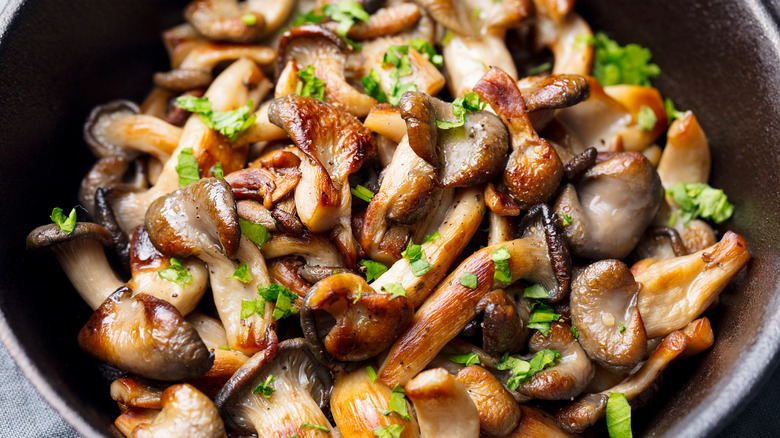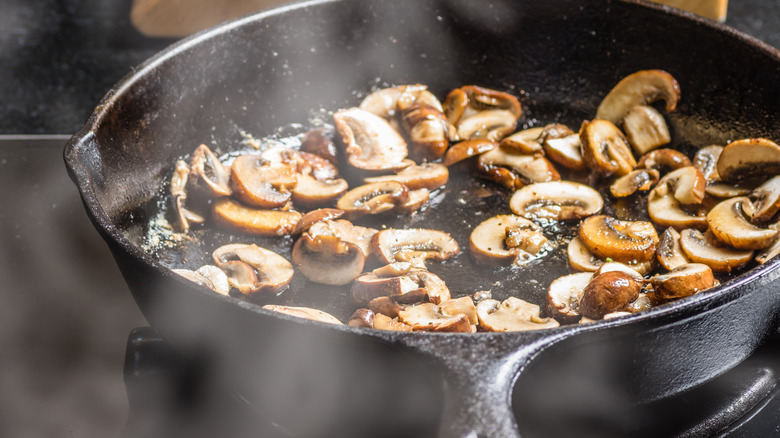The Step You Shouldn't Miss Before Sautéing Mushrooms
Mushrooms are delicate little fungi. They have a high water content and if you're not careful, they'll turn out more soggy than savory. To avoid this, you'll often see that it's recommended to dab mushrooms with a damp cloth to wash them and to cook them in high heat in a single layer. So if you're used to making them by squeezing out as much liquid as possible, it may sound counterintuitive to simmer them in salted water, but you absolutely should.
Cooking these fungi in salted water gives them a springy, almost chewy bite when done and the salt begins seasoning them early on. It also lets them cook evenly, as opposed to going straight into a sauté, where larger mushrooms may take longer to get tender while smaller ones may get overly crisp. The key here is to use just a little bit of liquid and to cook them long enough for the water to eventually evaporate, then you can go in with your butter or oil for a sauté. If done correctly, they won't turn soggy from soaking up all the fat you cook them in, the way they might if you just sautéed straight from the jump.
Simmer your mushrooms in a little salt water
Another benefit of cooking your mushrooms this way? You can thoroughly wash them ahead of time. Mushrooms are notoriously difficult to clean because they hold dirt in their grooves, but since they tend to get soggy with a normal sauté, you've probably been told not to expose them to too much water ahead of time. Since you're going to simmer them in the water anyway, though, feel free to give them a good cleaning beforehand. This can mean rinsing them in a colander or even soaking them in a big bowl of water.
Also, go ahead and crowd your pan when you're simmering. You'll want to use just enough water to cover the mushrooms, but you can stuff plenty of them onto the pan since all the liquid they release during cooking will evaporate eventually. And don't worry about overcooking them because mushrooms contain a substance called chitin, which is heat-stable and allows them to maintain their structure during long cooking times. Once all the water in your pan has evaporated and you hear them start to sizzle, toss in a little butter or oil and sauté them up until they're your preferred texture.

